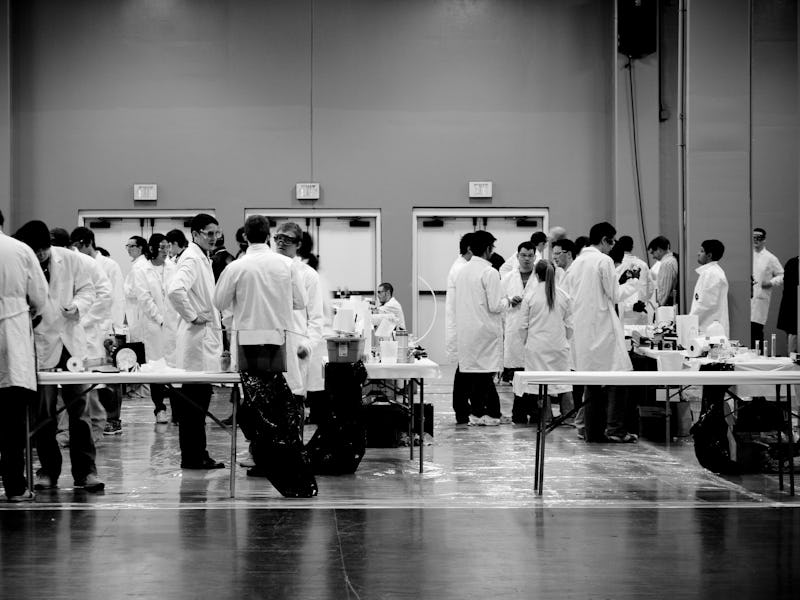Secrecy Around Human Genome Research Is a Bad Look for Scientists
There's a difference between a closed-door meeting and a gag order.

Science, at its best, is not a thing but a process, a gradual accumulation of evidence that strives towards truth. Journalism, at its best, is also a quest for truth. Still, the two disciplines often find themselves at odds. Scientists’ distrust of journalists reached a high water mark this week when attendees of a meeting to talk about research into synthesizing a human genome were allegedly given a broad gag-order prohibiting them from even saying publicly that the meeting was happening.
Drew Endy — presumably the same Drew Endy who teaches bioengineering at Stanford — tweeted a screen grab of the marching orders, along with this comment: “If you need secrecy to discuss your proposed research (synthesizing a human genome) you are doing something wrong.” This statement, however brief, resonated in the policy and journalism communities. If science is pursued for its own sake in service of the public good, surely the public, however fickle it may be, deserves some information.
“We intentionally did not invite the media, because we want everyone to speak freely and candidly without concerns of being misquoted or misinterpreted as the discussions evolve,” wrote the meeting organizers, according to the screen grab.
It’s easy to see their point. Journalists don’t always meet high standards of accuracy and integrity when reporting on science, as John Oliver pointed out this week. Synthesizing human genomes seems like a particularly sensitive area of research, one that could lend itself easily to sensationalism and misinterpretation.
But shutting down the public conversation is the wrong way to handle this. Here’s the thing: Scientists are already very careful about the things they say publicly. Usually they won’t talk about research findings until they have been published in a peer-reviewed journal, and even then they’re quick to explain the limitations of the methodology. The scientists who make the rounds doing bad science on morning shows are, well, bad scientists. They are outliers.
Of course scientists should have spaces for private conversations, but, in the age of radical transparency, secrecy implies guilt. Why not instruct meeting attendees instead to avoid representing the words or positions of others, and take care in representing their own? An all-out publication ban gives the distinct impression that something sketchy is happening behind closed doors.
If an area of research is so sensitive that even acknowledging its existence becomes a problem, maybe that’s a sign that an honest public conversation needs to happen before research continues in earnest.